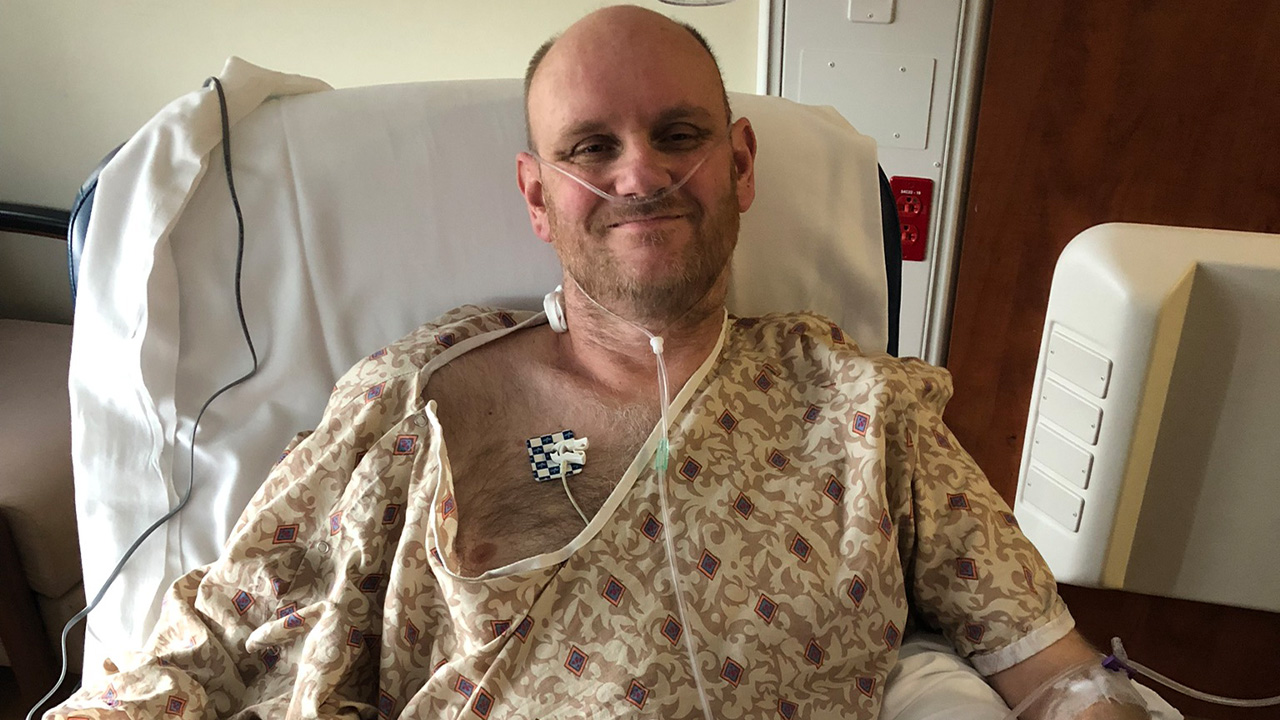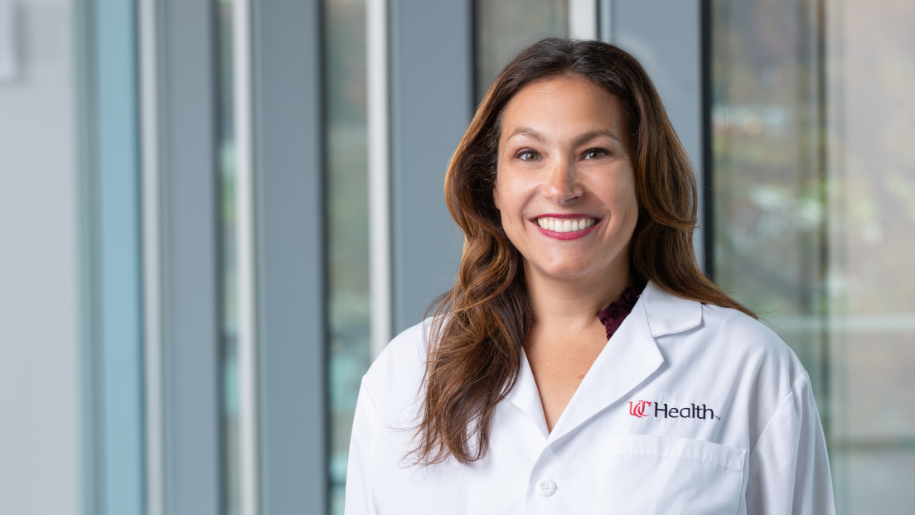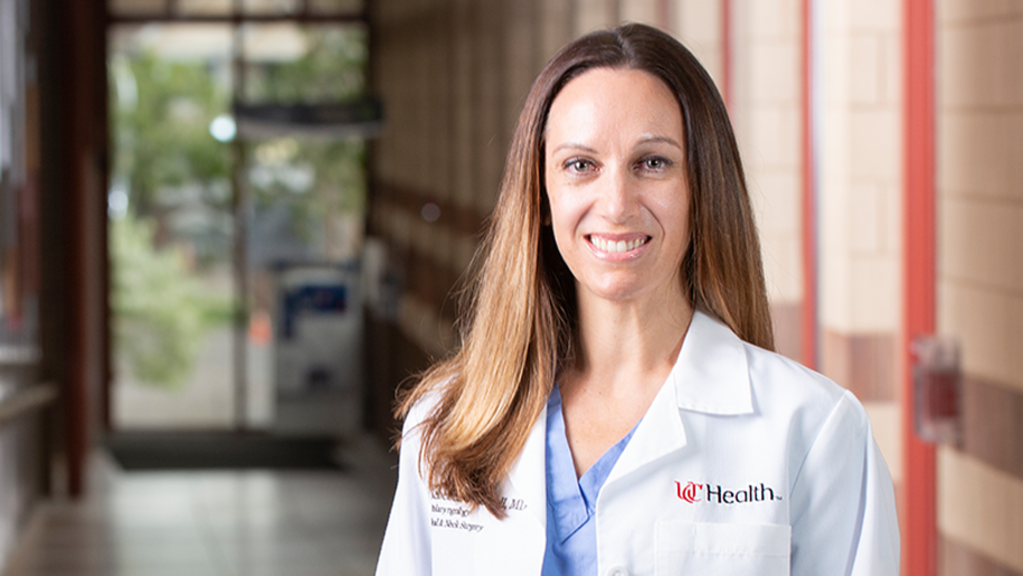Diagnosis: A Complex Case of Brainstem Stroke
Initial confusion surrounded his symptoms. The turning point came when Stacie Demel, DO, PhD, a member of the inpatient Neurology Team at West Chester Hospital, and UC Stroke Team for the Greater Cincinnati/Northern Kentucky Region connected the dots, identifying a stroke affecting the brainstem. This wasn't an ischemic stroke with typical symptoms of facial weakness, arm weakness and slurred speech—it was different and complex.
Understanding Brain Stem Strokes
This diagnosis marked a pivotal moment in Kevin's journey. Brainstem strokes are particularly complex due to their location. The brainstem is crucial for controlling basic functions like breathing, heart rate and blood pressure. Unlike other locations of strokes, brainstem strokes present unique symptoms, and thus diagnostic challenges. These can include difficulties with balance, eye movement, facial paralysis, and in Kevin's case, problems with swallowing and speech. Brainstem strokes can also involve both sides of the body, which is not typical for strokes in other brain locations. The brainstem's role in connecting the brain to the spinal cord means that even small strokes can have widespread effects on bodily functions. Recovery from a brainstem stroke involves a tailored approach, emphasizing both physical therapy and innovative treatments to address these complex symptoms.
For Kevin, the following days blurred into a challenging journey. Weakness engulfed Kevin’s left side, while the right lost all sensation, rendering him unable to walk, eat, or even swallow.
Hospitalized at West Chester Hospital for nearly four weeks, the focus shifted from preventing another stroke to preparing for a long rehabilitation path ahead, including daily physical and occupational therapy sessions essential for stroke recovery. Kevin, still unable to swallow, was placed on a feeding tube and ultimately a Percutaneous Endoscopic Gastrostomy (PEG) tube to allow him to receive nutrition through his stomach.
Remarkable Progress and New Hope
Kevin’s stroke recovery continued post-discharge. He underwent speech and swallowing therapy at an outside facility, disappointed and craving more partnership.
“This was my low point. It was terrible. I had therapy five days a week. Every stroke is different…but it was obvious that the approach wasn’t what I needed…There was no trying new and different things.”
Fortunately, with exceptional physical and occupational therapy that ultimately moved to in-home rehab, he became stronger, going from 100% wheelchair-bound to walking by June 2022, four months post-stroke.
However, still unable to swallow and speak at his pre-stroke level, Kevin was referred to Dr. Rebecca Howell, Director of the UC Health Swallowing Center, for answers. A week later he was sitting in front of Dr. Howell at West Chester Hospital.
“They did a lot of tests and Dr. Howell looked at me and said, ‘I’ll have you eating by Christmas.’ It had been 4 months. I had a lot of doubt, but I said, ‘When’s the surgery?’”
On July 20, 2022, Dr. Howell conducted an intricate 6-hour surgery to restore Kevin’s vocal cord function, pave the way for recovery, and regain his ability to eat and swallow once again. During his six-week recovery period, Kevin began seeing Brittany Krekeler, PhD, CCC-SLP, clinician-scientist in the Department of Otolaryngology-Head & Neck Surgery, or as he calls her, Dr. Brittany, to begin his weekly swallowing therapy, along with twice weekly visits with Angela Dionisio, MS, CCC-SLP, speech-language pathologist specializing in swallowing disorders.
“It had been basically seven months since I had anything. At the end of the very first session, after doing some water swallowing, Dr. Brittany brought out a fruit cup and had me try a couple of peaches. They went down, and let me tell you, it was the greatest thing ever. Best peaches ever.”





